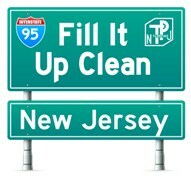Fill It Up Clean New Jersey, a diverse coalition of business and community stakeholders, is applauding the New Jersey state Senate for introducing legislation that would give the Garden State access to clean transportation fuels and provide immediate environmental benefits to reduce pollution and protect New Jersey’s air and water.
If passed by the full legislature, New Jersey would be the first state on the Eastern Seaboard to establish a clean fuel transportation standard. Prime sponsors of the newly introduced bill (S2425) are Sen. Bob Smith, chair, Senate Environment & Energy Committee; and Sen. John McKeon, also a member of that committee.
“Transportation is one of the hardest sectors to decarbonize, and New Jersey needs an aggressive approach, working in concert with the governor’s emphasis on EVs, to accelerate getting cleaner fuels into the heavy-duty transportation and aviation markets,” says Smith. “If other states can do this, why can’t we? I want New Jersey to be the first state on the Eastern Seaboard to establish a clean fuel transportation standard. What New Jersey accomplishes; others will follow.”
Transportation emissions accounted for almost half of all carbon dioxide (C02) emissions in New Jersey in 2021, over 10% higher than the national average. Diesel and gasoline are some of the largest sources of emissions and have been found to be correlated with asthma, lung cancer and other respiratory diseases.
“Rather than importing oil from overseas, we can create clean fuels right here in the U.S. from renewable sources that will help us meet our aggressive climate objectives while creating good-paying green jobs,” adds Smith. “By creating policy that helps our transportation sector decarbonize, we can meet our state’s goals in time to reduce greenhouse gas emissions.”
The bill addresses the fact that a disproportionate number of pollutants plague overburdened communities that suffer from diesel and jet engine fuel emissions.
“Disadvantaged communities are often forgotten and left behind because people don’t realize how many are forced to live in areas where planes fly overhead, buses idle and trucks pass through our neighborhoods,” says Loretta Winters, president, Gloucester County NAACP. “Addressing this in New Jersey, as this bill does, is long overdue.”
In Oregon and California, where clean fuel standards are already in existence, overburdened communities are found to experience lower levels of asthma, COPD and cancer than their counterparts in non-clean fuel standard markets. A study in Oregon by UC Davis found that the Clean Fuel Standard in Oregon equates to $80 million a year in public health benefits.
The bill, called the New Jersey Low Carbon Transportation Standard, would establish a low carbon transportation standard program in the New Jersey Department of Environmental Protection (DEP). Under the program, each refiner, wholesaler or importer of diesel or gasoline, and each producer of alternative fuel participating in the program, would be required to ensure that the transportation fuel refined, sold, imported or produced by the entity meets the low carbon transportation standard on an annual basis.
The proposed legislation notes that the low carbon transportation standard is technology-neutral and science-based and is an “effective policy to reduce greenhouse gas (GHG) emissions in the transportation sector, and associated subsectors that may be difficult to electrify, while also achieving other co-benefits such as improving public health due to a reduction in emissions.”
The legislation also notes that the creation of a low carbon transportation standard that rewards environmental performance will result in increased jobs in a variety of sectors including construction, agriculture, forestry and transportation. It will also create new markets for what would normally be considered waste, including municipal solid waste, manure, agricultural and forestry residuals, and industrial emissions. Since the deployment of the CFS in both California and Oregon, unemployment rates have dropped from 12.4% and 10.3% to 3.9% and 3.8%, respectively.
Similar legislation is in place in Washington, Oregon, California and throughout Canada. In addition, 14 states have introduced clean fuels legislation including New Mexico, Hawaii, Minnesota, New York, Michigan, Pennsylvania and Illinois.







